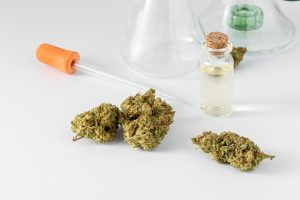In recent years, there has been a surge in interest, both among researchers and the general populace, regarding the potential health benefits of cannabidiol (CBD). Many individuals turn to CBD to enhance their sleep quality, although the exact impact of CBD products on sleep remains uncertain.
CBD, among the numerous cannabinoids derived from cannabis (estimated to be between 80 to 100), exhibits properties such as anti-inflammatory and analgesic effects. Additionally, there is emerging evidence suggesting CBD’s potential as an antioxidant, antipsychotic, and antiemetic.
With up to two-thirds of adults grappling with insomnia, it’s no wonder that CBD is gaining traction as a potential solution for sleep difficulties. Researchers are also exploring CBD’s efficacy for other sleep disorders like obstructive sleep apnea (OSA). However, substantial evidence linking CBD to improved sleep remains scarce, highlighting the need for further research to ascertain its effectiveness in addressing insomnia and other sleep-related issues.
Key Points to Remember:
- Cannabidiol (CBD) from cannabis may offer benefits for sleep-related concerns.
- CBD shows promise in addressing sleep disorders, mood irregularities, and pain management.
- Despite being generally considered safe, more research is warranted to explore the long-term effects of CBD use.
- It’s advisable to consult a healthcare professional before using CBD for sleep to ensure safety and proper dosing.
What is CBD?
CBD is one of the primary active compounds found in the cannabis plant, typically found in CBD products containing minimal to no tetrahydrocannabinol (THC), the psychoactive component responsible for the “high” associated with cannabis. Unlike THC, CBD does not induce intoxication or alter cognitive functions.
CBD products are increasingly popular and come in various forms, including oils, oral sprays, vape liquids, pills, edibles, topicals, and smokable products. Despite their popularity, questions remain regarding the benefits, risks, and safety of CBD use, particularly for sleep-related issues.
FDA Approval of CBD: Presently, only one CBD product has received FDA approval, along with three drugs containing synthetic cannabinoids. Epidiolex, Cesamet, Marinol, and Syndros have been approved for specific medical conditions, emphasizing the need for further research to establish CBD’s safety and effectiveness for various health concerns.
Impact of CBD on Sleep and Health: While large-scale studies on CBD’s efficacy for sleep disorders are limited, evidence suggests that CBD products may enhance sleep quality. CBD interacts with the endocannabinoid system, which regulates various bodily functions, including sleep patterns. However, the precise mechanisms through which CBD affects sleep require further investigation.
Studies have shown mixed results regarding CBD’s effectiveness in treating insomnia, sleep apnea, and narcolepsy, necessitating additional research to determine its viability as a treatment for sleep-related issues.
In summary, while CBD holds promise as a potential remedy for sleep disorders, further scientific inquiry is essential to fully understand its effects and establish its role in improving sleep quality and addressing related health conditions.
Anxiety: Over 70% of CBD users employ it to alleviate their anxiety symptoms. While evidence remains limited, studies suggest CBD may possess anti-anxiety properties.
CBD potentially influences certain cannabinoid receptors associated with anxiety. Further research is necessary to ascertain CBD’s long-term effects on anxiety disorders and determine the optimal dosage. Nonetheless, several studies suggest CBD could be a viable treatment for anxiety.
For some individuals, reduced anxiety levels may translate to improved sleep quality. Anxiety disorders often hinder sleep onset, and individuals with insomnia may develop anxiety surrounding sleep itself. It’s uncertain whether CBD directly aids both anxiety and sleep or if improved sleep is simply a byproduct of reduced anxiety.
PTSD: Individuals with post-traumatic stress disorder (PTSD) frequently encounter sleep disturbances like nightmares and insomnia, exacerbating their symptoms.
CBD may help mitigate PTSD-related nightmares by reducing activity in the amygdala, a brain region linked to panic reactions and paranoia. Some studies on PTSD patients have shown that synthetic cannabinoids alleviate nightmares and improve sleep.
Pain: Historically, cannabis has been utilized to alleviate pain, and CBD, with its anti-inflammatory and analgesic properties, may offer relief for certain chronic pain symptoms.
Although numerous studies have explored cannabinoids as potential pain relievers, results have often been inconclusive or insignificant.
Determining CBD Dosage for Improved Sleep: The effectiveness of CBD for sleep appears to be dose-dependent, with certain doses aiding in sleep onset while others may hinder it. Determining the optimal CBD dosage for sleep may rely on individual tolerance levels.
Healthcare providers typically commence CBD treatment for epilepsy with the lowest feasible dose, gradually adjusting it as necessary. If considering CBD for sleep, start with a small dose and monitor your body’s response before considering dosage adjustments.
Before commencing CBD for sleep, it’s crucial to inform your healthcare provider, especially if you’re currently taking other supplements or medications. They can advise on potential interactions or impacts CBD might have on existing health conditions.
Safety and Side Effects of CBD: CBD for sleep is generally deemed safe, though further research is warranted to understand its long-term effects on health.
Common side effects associated with CBD use include mild symptoms like dry mouth, diarrhea, drowsiness, reduced appetite, and low blood pressure.
While much remains unknown about CBD, researchers suggest it may be safer than certain medications for treating sleep and other health issues, given the absence of overdose reports or significant adverse effects.
If you decide to add CBD to your wellness routine, try Candy Cloud’s popular CBD Gummies. You can be confident in using our gummies, as all Candy Cloud CBD products undergo vigorous lab tests to ensure potency, free of metal or pesticides, and consistency. Before incorporating CBD into your sleep regimen, consult your doctor to weigh its potential benefits and risks.






